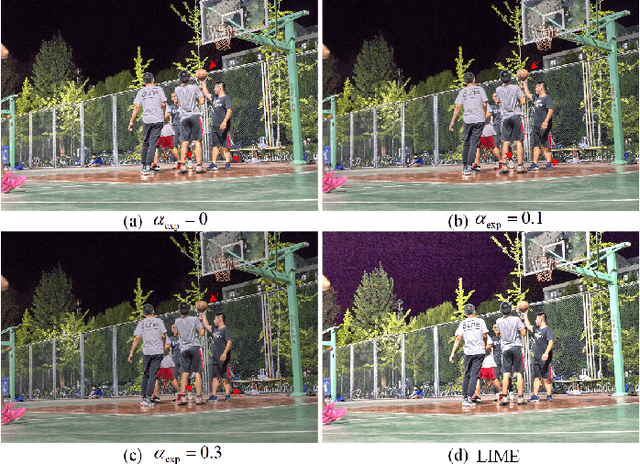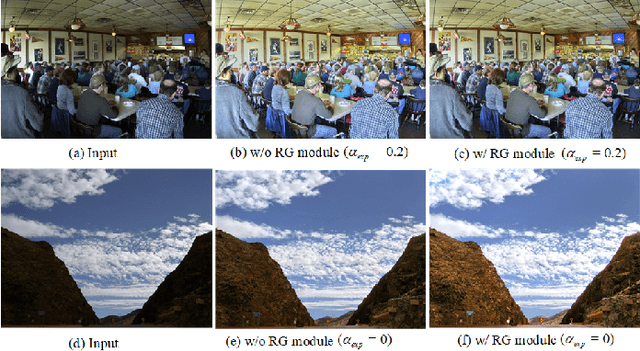ITRE: Low-light Image Enhancement Based on Illumination Transmission Ratio Estimation
Paper and Code
Oct 08, 2023



Noise, artifacts, and over-exposure are significant challenges in the field of low-light image enhancement. Existing methods often struggle to address these issues simultaneously. In this paper, we propose a novel Retinex-based method, called ITRE, which suppresses noise and artifacts from the origin of the model, prevents over-exposure throughout the enhancement process. Specifically, we assume that there must exist a pixel which is least disturbed by low light within pixels of same color. First, clustering the pixels on the RGB color space to find the Illumination Transmission Ratio (ITR) matrix of the whole image, which determines that noise is not over-amplified easily. Next, we consider ITR of the image as the initial illumination transmission map to construct a base model for refined transmission map, which prevents artifacts. Additionally, we design an over-exposure module that captures the fundamental characteristics of pixel over-exposure and seamlessly integrate it into the base model. Finally, there is a possibility of weak enhancement when inter-class distance of pixels with same color is too small. To counteract this, we design a Robust-Guard module that safeguards the robustness of the image enhancement process. Extensive experiments demonstrate the effectiveness of our approach in suppressing noise, preventing artifacts, and controlling over-exposure level simultaneously. Our method performs superiority in qualitative and quantitative performance evaluations by comparing with state-of-the-art methods.
 Add to Chrome
Add to Chrome Add to Firefox
Add to Firefox Add to Edge
Add to Edge